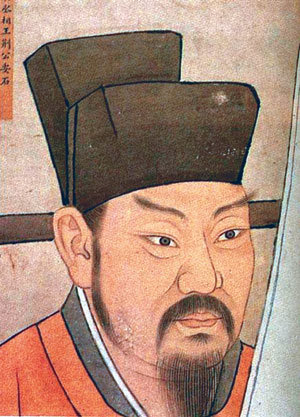Reasons for the Failures of Chinese Royal Reformers
Reasons for the Failures of Chinese Royal Reformers
Posted July. 07, 2007 03:04,

With the influences of Chinas feudal states growing, Cao Cao, a Chinese reformist of his day, tried to consolidate the Chinese central governments rule over the parts of China to secure the safety of the imperial family of the Western Han Dynasty. Then-prosecutor general Cao came up with a plan called Sakbeon that urged Emperor Jing to downsize the jurisdictions controlled by his feudal lords.
Wonang, who served as prime minister of Wu, one of the feudal states, came forward and opposed the plan, saying, Wu and Chu have no strength to rise in insurrection. But Cao pushed for Sakbeon anyway, which prompted rebellions that historians call the Rebellion of the Seven States. Beleaguered Emperor Jing put Cao Cao to death at the urgent request of Wonang, who said, You can suppress the rebellions by killing Cao and return the forfeited land to feudal lords.
This story doesnt say outright who was a villainous retainer and who was a loyal vassal. There was no denying that Cao had integrity, and was righteous. What about Wonang? He was also a man of high virtue and integrity. So why did Cao alone die a violent death? For all his knowledge and abilities, he was very opinionated and was not considerate of others. The father of Cao asked his son to withdraw Sakbeon to avoid the downfall of his family. When Cao rebuffed his request, he poisoned himself. Cao thought only about what to do, but didnt know how to do it.
Yi Zhongtian, a professor at Xiamen University, is taking the lead in popularizing history through the program, Lectures on the Records of the Chu and Han Dynasties on CCTV (China Central Television). He explores in detail the actions of heroes and crafty men in difficult times by delving into decisive moments that led to upheavals in Chinas history.
His analysis is clear as well as acrid. Though we are accustomed to versions of Chinese history that divide heroes from villainous retainers, he is dead set against the dichotomy. He elucidates that history is not a struggle between good and evil but one between force and force, and between policy and policy. And he reveals the truth hiding behind those struggles.
The same goes with the failure of Wang An-shi, who advocated Heenyeongbeonbeop, a military build-up in the Song Dynasty. Though he proposed several reform measures that were badly needed at the time, he failed to implement them. The failure was attributed not only to opposition from fellow vassals, but also the corruption rampant in the dynasty. Corrupt officials exploited his reform measures for the sake of their personal interests. The enthusiastic and smart reformist was not fully aware of what was going on in reality. Though he was a man of morality, unfortunately, the success of reform has no bearing on morality.
Officials of the Qing Dynasty who participated in the Opium War reported false information to the emperor. Even though they suffered a crushing defeat, they said to the emperor that they had gained a victory. They did so because a report of a defeat by Britain, whom they called island savages, meant death. They were addicted to the opium of false reporting in order to spare their lives.
Its not easy to encounter a book that reads so well that one reads all it at one sitting. Its all the more so when it comes to a translated book on humanities. But this book, Lectures on Records of the Chu and Han Dynasties, is so attractive that readers will be instantly engrossed in spite of themselves.
The book is a must for aspiring politicians, CEOs, and ambitious people who want to be leaders. When they finish reading it, they will find themselves thinking that the nation is also suffering from a lack of how and an excess of what.
yyc11@donga.com






![[천광암 칼럼]장동혁은 대체 왜 이럴까](https://dimg.donga.com/c/138/175/90/1/wps/NEWS/IMAGE/2026/02/22/133399127.1.jpg)
